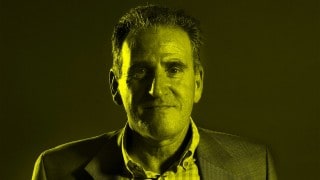Apparently it is now safe to start withdrawing our troops from Germany. In the week before Remembrance Sunday, the government announced that all 20,000 British troops stationed on German soil will be withdrawn by 2020 — 15 years earlier than the date previously agreed. Shockingly ignorant, I know (especially as my late father-in-law had been chief of staff, the British Army of the Rhine), but I had little idea that even now our single biggest deployment of forces overseas is in North Rhine-Westphalia and Lower Saxony.
On British newspaper sites covering this story are reader comments such as “Fool, back!” and “Britain starts to pull its troops out of Germany just as they start trying to march all over Europe again”. In reality, those troops had been stationed to counter the Russian threat to Germany, rather than Germany’s threat to us; but on this day of all days we should not forget what caused us to be there in the first place.
That is no excuse, though, for the predictable commentary painting modern-day Germany as an unreconstructed bullyboy nationalist, determined to crush all resistance to a revived dream of pan-European hegemony. Now it is being accused of economic warfare against the rest of Europe, because of its refusal to sanction the idea that the European Central Bank guarantees the debts of Greece, Italy, Spain and Portugal.
Both Barack Obama and David Cameron (to name two men at random) are scandalised by what they see as Berlin’s sabotage of the global economy. The British government, which is officially of the view that we would be insane to join the euro, nonetheless urges Germany to preserve the membership of the club by underwriting the debts incurred by countries that should never have joined in the first place. If that were to happen, then German capital would indeed have a hegemonic (but ultimately self-destructive) position in Europe: so why should anyone see it as a kind of nascent Fourth Reich when Berlin refuses to take up such a role?
We are told that President Obama is baffled and infuriated by Angela Merkel’s protest that she cannot allow German taxpayers to be on the hook for the delinquencies of every other European nation. He cannot understand why, since Europe as a whole has a lower level of indebtedness than the US, it can’t just “join the dots” — as Mark Mardell reported from Washington last week. The BBC’s North America editor went on to quote “a source” who “reminded me that for 35 years the White House has wanted a single phone number for Europe. Now it has one, and it is Angela Merkel’s. But she is not really listening”.
This reflects worse on Washington than it does on Berlin. In Obama’s defence, he is certainly not the first occupant of the White House to see things this way. Successive presidents seem to have thought that because there is something called Europe, it must be a country — and should behave like one. They ought to have reflected more on Bismarck’s observation that “Europe is just a geographical expression”.
Again, to be fair to Washington, post-war German governments have been assiduous in creating the idea that their country was entirely post-national; and indeed it was the aim of leaders such as Willy Brandt, Helmut Schmidt and Helmut Kohl to detoxify the German brand by making their country known above all else as “a good European”.
The Greeks, who suffered horribly at the hands of the Nazis, have been skilful at continuing to paint modern Germany as a direct continuation of that regime (with cartoons in their national press of Angela Merkel wearing swastika armbands); but ultimately any German government is answerable to its own people — and its own people are not prepared to mortgage all their savings to fund the hypertrophied welfare states of the entire European continent. Or, as Der Spiegel observed last month: “Angela Merkel is less fearful of someone like US President Barack Obama than of German voters.”
This argument does not absolve Merkel of the charge of weak leadership: after all, it was putting desire for re-election ahead of the perilous political path known as statesmanship that led countries such as Greece and Italy to end up revolving like hogs on a spit over the flames of the international bond market.
Merkel, in fact, has more than mere domestic popularity as a counter argument to those urging Germany to “do the decent thing”. Nor is her position just based on her country’s much-noted aversion to easy money as the solution to debt (stemming from the collapse of the Weimar republic after hyperinflation had turned respectable women into prostitutes and pensioners into corpses).
Germany has not become the most successful economy in Europe simply by virtue of being German. In the 1990s it was being described as “the new sick man of Europe”; it was only through the most painful restructuring, involving cuts in real wages and pension entitlements, that it regained its status as an efficient economic motor at the centre of Europe. This can be viewed best through the prism of prices. Between 1995 and 2008, prices of goods produced in Greece went up by an average of 67%; prices of domestically produced goods increased in Spain by 56%, by 47% in Portugal and by 41% in Italy. Over the same period, prices went up in Germany by just 9%.
This is the main reason why Germany has built up a tremendous surplus within the eurozone, so that it is now being blamed for the resulting deficits on the part of southern Europe, and by extension, the latter’s difficulties in reducing their budget deficits. Yet Germany is surely right to argue that the problem of those countries is structural, and must be addressed by measures similar to those it took itself.
Where Germany’s politicians are undeniably wrong is in continuing to assert that the euro must be maintained: since they do not want to move to full fiscal union (involving massive transfers to other euro member states to keep them in the free-loading style to which they have become accustomed) the currency is doomed — as Bundesbank officials warned unavailingly at its creation. Full comment (subscription required)









